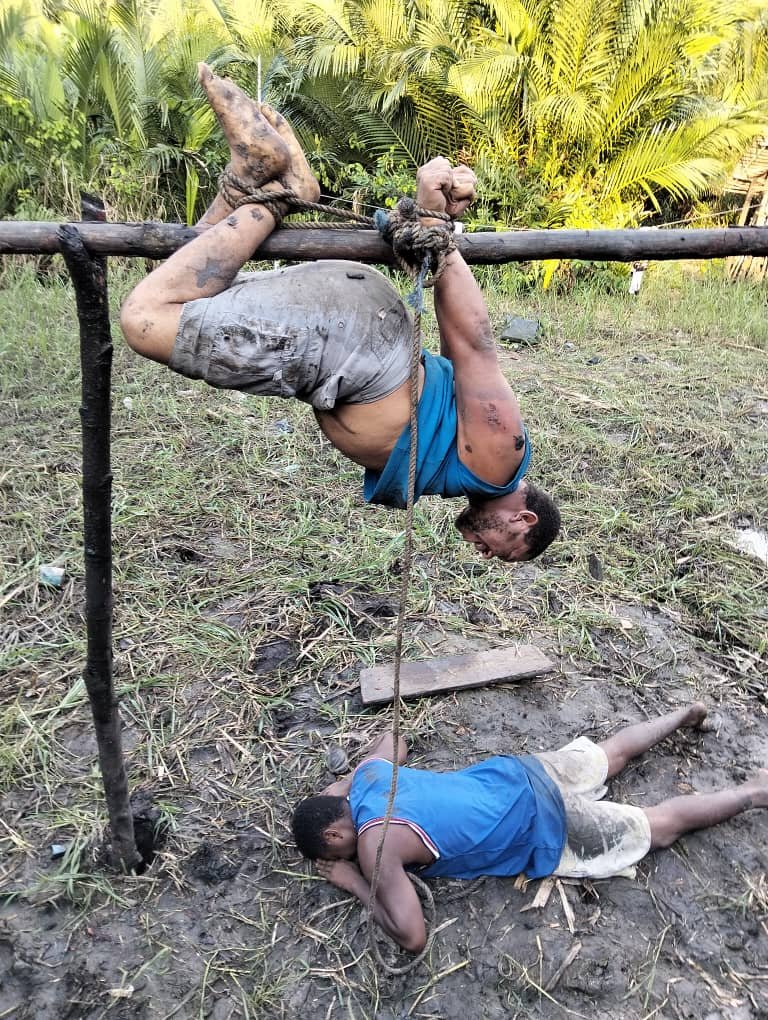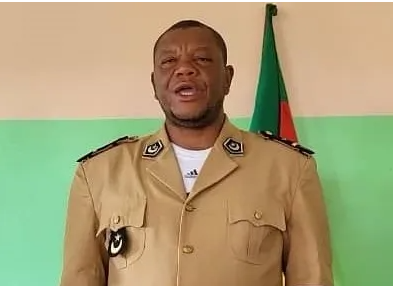Idabato, Ndian – The tragic abduction of Roland Ewane, local government administrator of Idabato, in Ndian county, raises profound questions about the nature of governance, justice, and equity within LA Republique du Cameroun. While the kidnapping itself is a grievous act that underscores the volatility in the region, the Cameroonian government’s response—or lack thereof—reveals deeper systemic issues that continue to plague the relationship between the French-speaking majority and the annexed and marginalized Southern Cameroonian minority. The silence surrounding Ewane’s fate is a glaring reminder of why Ambazonia has resisted integration into La République du Cameroun (LRC) for decades.
The anguish of Ewane’s wife, desperately seeking answers about her husband’s fate, paints a stark picture of the Cameroonian state’s apathy. Despite social media circulating images that depict Ewane as lifeless, officials, from Governor Bernard Okalia Bilai to Prime Minister Joseph Dion Ngute, have offered little more than platitudes. Ewane’s wife has been told repeatedly to “pray harder,” an insultingly passive response from those entrusted with the responsibility to act.
The family’s frustration is mirrored by growing public discontent, as political parties like Maurice Kamto’s Cameroon Renaissance Movement (CRM) call out the government for its dereliction of duty. Kamto’s press release castigates the administration for its silence and highlights the bravery of civil servants like Ewane, who work under perilous conditions. Yet, even Kamto stops short of addressing the elephant in the room: Ewane’s plight has been ignored because he is Ambazonian.
The stark disparity in governmental responses between Francophone and Southern Cameroonian victims is undeniable. Ewane’s case is not an isolated incident but part of a long history of systemic neglect. When prominent Francophone figures have been abducted or attacked, the government has mobilized significant resources, sometimes even negotiating with groups it publicly deems “terrorists.” For instance, when Boko Haram abducted relatives of a Cameroonian minister, reports indicate that LRC paid a ransom to secure their release. In stark contrast, the Ambazonian identity of Ewane has relegated his case to the margins, with officials invoking their refusal to negotiate with “terrorists” as an excuse for inaction.

If Bernard Okalia Bilai himself had been the one abducted, the response would have been vastly different. The military might of the state would have descended on Idabato, with homes torched and entire communities displaced in retaliation. But for Ewane, a Southern Cameroonian, the government’s silence speaks volumes about the systemic inequities that have fueled the Ambazonian struggle for eight years and counting.
The neglect shown in Ewane’s case is emblematic of why Southern Cameroonians have long resisted integration into Cameroon. The ongoing war in Ambazonia is not merely about independence—it is about survival and the rejection of a system that devalues Southern Cameroonian lives. The marginalization of Ambazonians in governance, resource allocation, and justice has created a deep chasm of mistrust.
Ewane’s abduction, ostensibly due to tax enforcement against Nigerian fishing communities in Idabato, illustrates how Southern Cameroonians are often placed in harm’s way to serve the state’s interests. Taxation policies imposed without consultation or sensitivity to local realities exacerbate tensions in regions already grappling with conflict and economic hardship. The state’s failure to protect its own representative from the backlash of these policies further underscores its disregard for Southern Cameroonian welfare.
Governor Okalia Bilai’s handling of the situation has drawn widespread criticism, and rightfully so. His initial threats following the abduction were incendiary, yet his failure to follow through with meaningful action reflects a broader crisis of leadership. The 72-hour ultimatum he issued has long since expired, and the governor has not only failed to deliver on his promises but has also avoided accountability. His silence following the release of images suggesting Ewane’s death is a betrayal of the public trust and an indictment of the state’s priorities.
Minister of Territorial Administration Paul Atanga Nji and Prime Minister Joseph Dion Ngute have similarly failed to rise to the occasion. Their dismissive attitudes toward Ewane’s family demonstrate a callousness that is all too familiar to Southern Cameroonians. These leaders, both of Southern Cameroonian origin themselves, are seen by many as complicit in perpetuating the system of oppression they should be working to dismantle.
Maurice Kamto’s condemnation of the government’s inaction is a welcome intervention, but it is insufficient. While Kamto rightly criticizes the state for neglecting Ewane, he stops short of acknowledging the systemic discrimination that underpins this neglect. His reluctance to explicitly address the Ambazonian dimension of the crisis reflects the broader unwillingness of Francophone political elites to confront the root causes of the conflict. This omission weakens his critique and perpetuates the narrative that Southern Cameroonians are less deserving of justice and protection.
The plight of Sub-Prefect Roland Ewane should serve as a wake-up call—not just to the government of LRC but also to the international community. The ongoing war in Ambazonia is not merely a political conflict; it is a humanitarian crisis rooted in decades of systemic injustice. Ewane’s case highlights the urgent need for a comprehensive resolution that addresses the grievances of Southern Cameroonians and ensures equal protection under the law.
For Ambazonians, Ewane’s story is yet another reminder of why the struggle for independence is essential. It underscores the futility of expecting justice within a system that fundamentally devalues Ambazonian lives. As the government continues to prioritize its Francophone majority at the expense of Southern Cameroonian citizens, the call for self-determination grows ever louder.
For those who sit on the fence, hoping that Cameroon will one day change, Ewane’s story should serve as a sobering reminder of the realities Ambazonians face. Change will not come from within a system built on inequity and oppression. It will only come through perseverance, solidarity, and the unwavering pursuit of freedom.
Ambazonia must remain steadfast in its struggle, not only for the memory of individuals like Ewane but for the countless others who have suffered under the weight of systemic injustice. Let this tragedy galvanize the movement, reminding every Ambazonian of the stakes involved and the urgency of the fight for independence. The road may be long, but the destination—a free and just Ambazonia—is worth every sacrifice.

